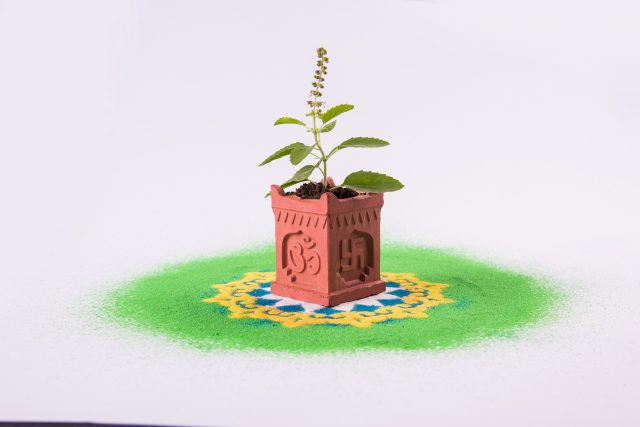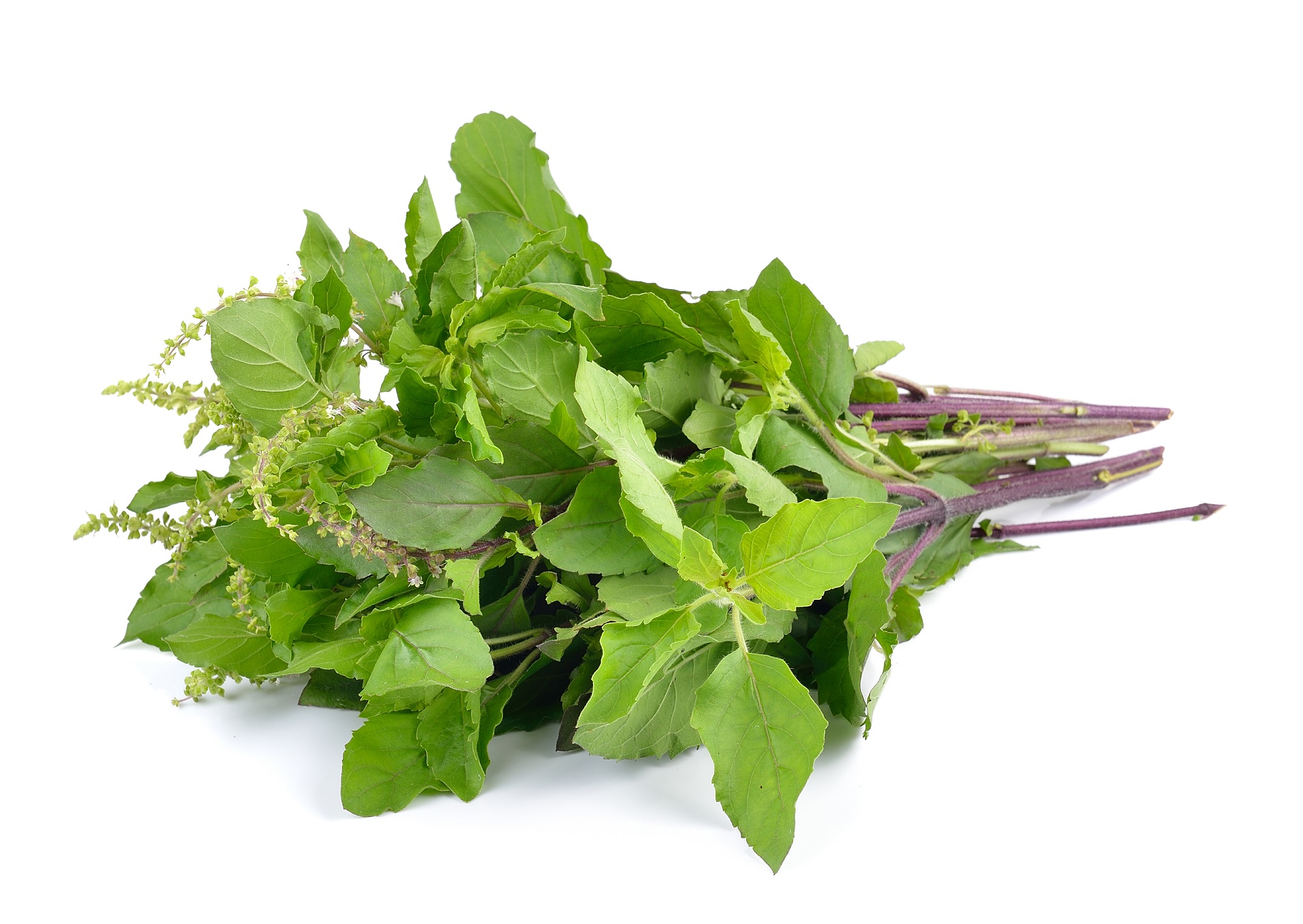The Goodness of Tulsi
Tulsi, the incomparable plant, is your first-aid remedy for all ailments. Use a few tulsi leaves every day to fight the ravages of time!!
The leaves of the basil plant are used widely all over the world. In India, it is considered holy and grown in most households. The tulsi leaf is an important herb that is used in Ayurveda, in food and holy offerings. The word ‘tulsi’ itself means ‘incomparable herb’.
Medical and pharma research now has validated the Indian dependence on tulsi. There are two important varieties: black (Krishna-tulsi) and pale green (Siva-tulsi). The black variety is used as a healer. There are the red and blue varieties as well.
- In Ayurveda, the leaves are used as a stimulant, expectorant, carminative and against fevers as it can cause profuse sweating.
- Tulsi leaves are anti-stress agents and effective in treating many health problems.
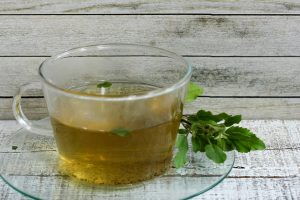 Tulsi tea is a natural remedy for many modern-day ailments like anxiety, tiredness, hypothyroidism, diabetes and cancer.
Tulsi tea is a natural remedy for many modern-day ailments like anxiety, tiredness, hypothyroidism, diabetes and cancer.- The powder of the dry leaves is used in nasal ailments.
- It is an excellent remedy for acne as it attacks the pus and is an anti-septic agent.
- The seeds are used for softening or soothing the skin and that is where it works to ease wrinkles and aging of the skin. Tulsi reduces dark spots, ageing black marks and works wonders on all types of skin, especially oily skin. Tulsi oil and extracts have traditionally been used in Indian cosmetics.
- Its antiseptic and blood purifying qualities works to detoxify the body.
- A cup of tulsi leaves has more than the daily recommended vitamin K, an important requisite for the health of bones and the heart.
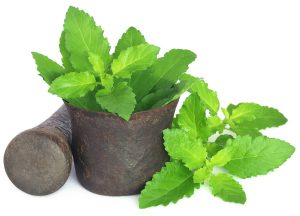 It prevents blood clotting and helps to fight factors that affect your bone density, digestive system and workings of the brain. All these organs deteriorate with age and contribute to the ageing process.
It prevents blood clotting and helps to fight factors that affect your bone density, digestive system and workings of the brain. All these organs deteriorate with age and contribute to the ageing process.- Tulsi fights bacteria in your mouth and protects your teeth…so dentures will be delayed!
- Tulsi also helps to protect your eyes from environmental and pollution issues and helps to keep your eyesight in tip top condition.
- Like eucalyptus, tulsi drives away mosquitoes, and so it was grown in the front yards and courtyards of homes.
- Tulsi is used in insect bites.
- Traditionally its juice has been used to treat snakebite both externally as a poultice and as a juice that is given along with other medications.
Add tulsi to your diet:
- Chew a few tulsi leaves in the morning, especially if you are going for a walk. It energizes and detoxes your system.
- Boil half a cup of tulsi in two cups of water to make a tea and drink regularly. Gargle your mouth with this tea to prevent mouth ulcers, tooth decay and throat infections.
- Add cloves and cinnamon to tulsi tea to help control blood sugar.
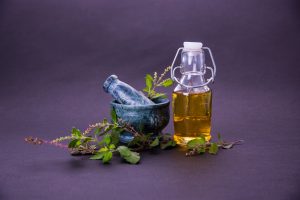 Use the leaves of the tulsi as a natural expectorant to bring out mucus from the lungs in case of bronchitis and asthma. It helps your breathing. Make a decoction of tulsi leaves, honey and ginger and have it every few hours.
Use the leaves of the tulsi as a natural expectorant to bring out mucus from the lungs in case of bronchitis and asthma. It helps your breathing. Make a decoction of tulsi leaves, honey and ginger and have it every few hours.- Chew tulsi leaves and follow it up with warm water to get relief from cold and flu symptoms.
- Keep a bottle of tulsi juice, oil or dried tulsi powder handy for home remedies.































